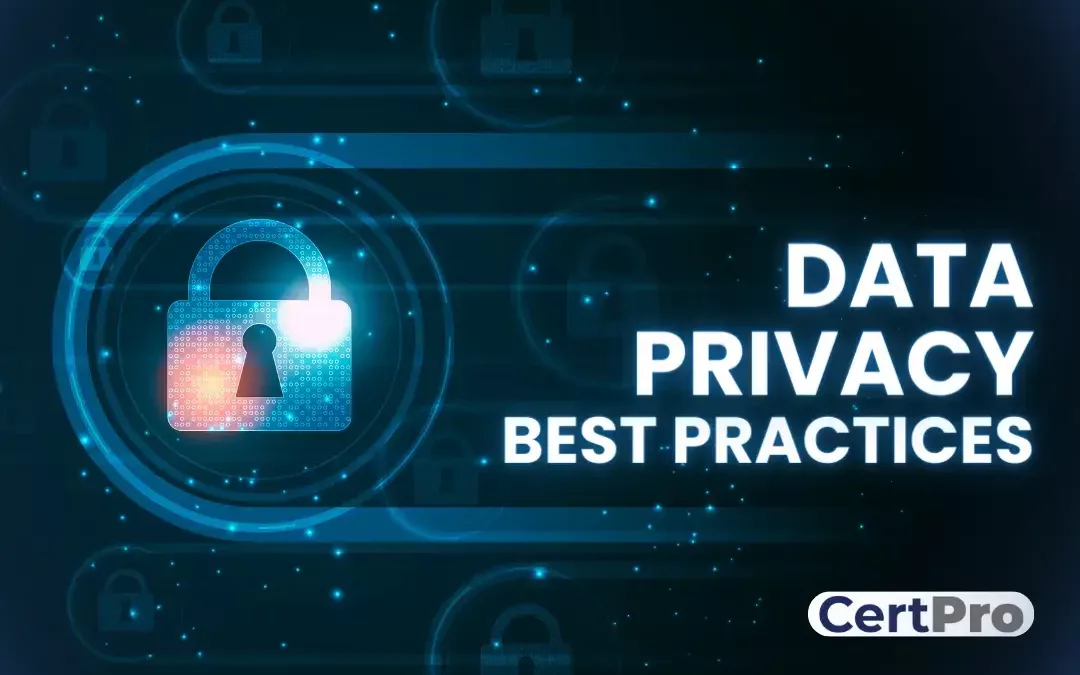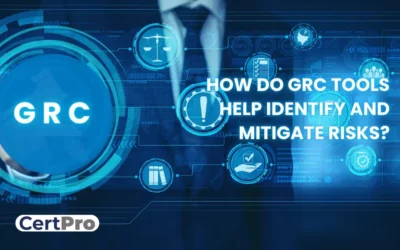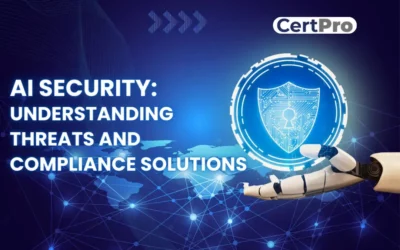In today’s digital era, safeguarding personal information has surged in significance, making data privacy best practices and the protection of sensitive data more vital than ever before. The growing reliance on digital platforms and technologies underscores the urgency of this matter.
Data privacy is the protection of an individual’s personal information, ensuring that their sensitive data is not exploited, accessed, or shared without their permission. Individuals have the right to control how organizations and institutions collect, use, store, and share their data. Best privacy practices entail protecting numerous sorts of personal data from illegal access and potential exploitation, such as contact information, financial records, medical history, internet activities, and more.
In the digital age, where vast amounts of personal information are collected, processed, and exchanged through online platforms, the importance of data privacy cannot be overstated. Despite growing awareness of data privacy, concerns about the frequency and severity of data breaches persist. When unauthorized individuals gain access to sensitive data, a data breach happens.
This article explores the various facets of data privacy best practices, the growing digitalization and its effects on privacy intrusions, and how various standards support data privacy protection in the digital era.
THE IMPORTANCE OF DATA PRIVACY
In today’s linked digital landscape, data security best practices are critical for three reasons: protecting personal information, preserving sensitive data, and sustaining trust and reputation.
To begin, best practices in data privacy protect personal information from unwanted access and exploitation. Maintaining control over one’s information is critical to preventing identity theft, financial fraud, and other forms of cybercrime in an era when personal data is gathered, processed, and shared extensively. Individuals can navigate the digital world without jeopardizing their privacy by securing personal details such as contact information, bank records, and online activity.
Second, the best practices in data privacy are critical to protecting sensitive data. Healthcare, finance, and e-commerce all handle sensitive information that, if compromised, can have far-reaching effects. Robust data privacy best practices prevent unauthorized individuals from accessing medical records, financial transactions, and other sensitive details, thus mitigating the potential for reputational damage and legal liabilities.
Finally, preserving trust and reputation is inextricably tied to data security best practices. Organizations that value data privacy show their dedication to ethical standards and appropriate data handling. Such transparency creates trust among users and consumers, encouraging them to confidently disclose their information. Data breaches, on the other hand, destroy trust, resulting in negative public perception, customer loss, and legal ramifications.
FIVE BEST PRIVACY PRACTICES
Adopting rigorous safeguards to secure personal and sensitive information is non-negotiable in the ever-changing landscape of online security. The use of unique and complicated passwords, enabling two-factor authentication (2FA), and routinely updating passwords are three critical habits that constitute the cornerstone of this protection plan. We will be exploring the five most useful and best privacy practices:
1. Using Unique and Complex Passwords: The first line of defense against unauthorized access is to create passwords that are both unique and complex.
Avoid easily guessed information such as names, birthdays, or common words. By using unique passwords for each account, you reduce the possibility of a single breach impacting numerous sites.
2. Enable Two-Factor Authentication (2FA): This provides an extra degree of security by requiring an additional verification step in addition to your password.
A one-time code is frequently delivered to your mobile device or email. Even if bad actors obtain your password, they will still require this secondary code in order to gain access.
3. Frequently Update Passwords: Keeping your passwords up to date is a simple yet effective technique to stay ahead of potential security breaches. Regular Password changes reduce the window of opportunity for fraudsters who may have obtained your old password through data breaches or other reasons.
4. Utilize Secure Cloud Storage Solutions: While cloud storage is undeniably convenient, it is critical to choose trustworthy and secure cloud services. To protect your data, these services use strong security methods such as encryption in transit and at rest, multi-factor authentication for access, and regular security assessments.
5. Encrypt Sensitive Data: Encryption is a powerful deterrent to unauthorized access to sensitive information. Even if a breach happens, the stolen data remains indecipherable because it is converted into a jumbled format that can only be decrypted with the necessary encryption key.

EXPLORE THE IMPACT OF COMPLIANCE WITH ISO, HIPAA, CCPA, PIPEDA, AND GDPR
These standards are intended to create a framework for protecting personal and sensitive data, maintaining transparency, and giving individuals more control over their data. Here’s how each of these standards can help with data privacy:
1. ISO (International Organization for Standardization): ISO 27001 is a widely accepted standard that outlines a methodical approach to securely managing sensitive information. It assists organizations in the establishment, implementation, maintenance, and continuous improvement of an information security management system (ISMS). Organizations that adhere to ISO 27001 requirements can identify risks, implement controls, and foster a culture of security awareness, thereby protecting data from breaches and unauthorized access.
2. HIPAA (Health Insurance Portability and Accountability Act): HIPAA is mandatory for healthcare businesses that handle patient health information (PHI). HIPAA compliance ensures that only authorized personnel can safely store, send, and access patient data. HIPAA requires the establishment of administrative, technical, and physical measures.
3. California Consumer Privacy Act (CCPA): The CCPA gives Californians more control over their personal data and imposes duties on businesses that handle it. To comply with the CCPA, organizations must provide clear information about data collection and usage, allow customers to access their data, and provide them the opportunity to request data deletion. This promotes data processing transparency and accountability.
4. PIPEDA (Personal Information Protection and Electronic Documents Act): PIPEDA is Canada’s federal privacy law that governs the acquisition, use, and disclosure of personal information by private sector organizations. It stresses gaining informed consent for data collection, guaranteeing data accuracy, and providing individuals with access to their data.
5. GDPR (General Data Protection Policy): GDPR is a comprehensive European Union policy that focuses on preserving EU citizens’ personal data privacy best practices and rights. Organizations must get express consent for data processing, give data subjects access to and remove their data, and employ strong security measures.
CERTPRO’S EXPERTISE IN ENSURING CONFORMANCE WITH LEADING STANDARDS
CertPro is a beacon of knowledge in the field of best practices in data privacy and security, offering a holistic approach that extends beyond compliance checkboxes. We specialize in assisting enterprises towards smooth compliance with the most prestigious worldwide standards with a consistent dedication to quality. Our experienced specialists are well-versed in the complexities of ISO, HIPAA, CCPA, PIPEDA, and GDPR and can seamlessly weave them into the fabric of your business.
CertPro simplifies procedures, develops specialized strategies, and implements robust measures to ensure the security of your data. We turn complexity into clarity, from rigorous data inventories to bespoke security processes, all while adhering to best practices in data privacy. But we don’t stop at compliance. CertPro provides comprehensive training for your team, building a culture of alertness and emphasizing data privacy best practices. With a proven track record of success, we assist you in navigating regulatory landscapes while increasing customer trust and demonstrating your commitment to safeguarding data.
FAQ
What are data privacy practices?
Why is data privacy important for businesses?
What are some key components of data privacy best practices?
What is the role of transparency in data privacy best practices?
Are privacy and data best practices the same worldwide?

About the Author
RAGHURAM S
Raghuram S, Regional Manager in the United Kingdom, is a technical consulting expert with a focus on compliance and auditing. His profound understanding of technical landscapes contributes to innovative solutions that meet international standards.
HOW DO GRC TOOLS HELP IDENTIFY AND MITIGATE RISKS?
In today’s fast-paced business environment, emerging threats and risks negatively influence business operations. Threats can arise from different sources, such as cybersecurity compliance requirements, supply chain disruption, and natural disasters. Thus, the...
AI SECURITY: UNDERSTANDING THREATS AND COMPLIANCE SOLUTIONS
Artificial Intelligence continues to grow and become more relevant in workplaces. Customers widely use it to handle market products. Organizations are desperately using AI for their businesses, ensuring that the AI systems comply with the new rules and regulations. In...
HOW DOES THE NIST CYBERSECURITY FRAMEWORK FUNCTION, AND WHY IS IT IMPORTANT?
Emerging cyber threats make cybersecurity an essential consideration for organizations handling and managing data. In this regard, the NIST cybersecurity framework applies to improving your cybersecurity program. It is a set of guidelines that helps improve your...




